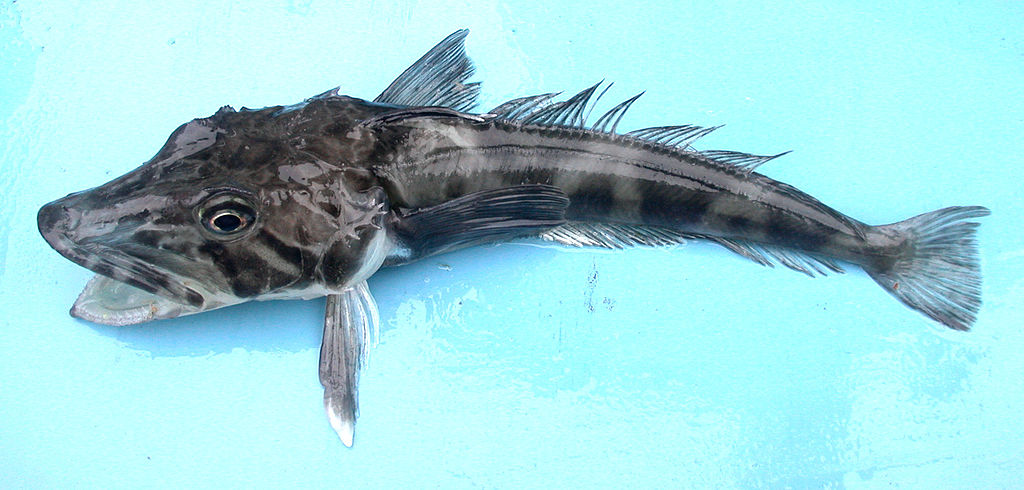by Greg St. Martin
This spring, marine biology major Laura Goetz sought to learn as much as she could about Antarctic fish to prepare for her upcoming co-op in Antarctica, but she noticed that there weren’t many accessible web resources on the topic.
Thanks to an assignment in her “Advanced Writing in the Disciplines” course, however, Goetz was able to do something about that: she created a Wikipedia page. “These are really interesting fish and everyone should have a chance to learn more about them,” she wrote in an email from Palmer Station in Antarctica, where she and two other students are now working alongside Northeastern professor William Detrich.
Goetz’s work to create a Wikipedia page on Antarctic fish was part of a larger effort over the past year to enlist thousands of students from Northeastern and other colleges and universities to improve Wikipedia’s coverage of the sciences. Fifty-four students in advanced writing courses taught this spring by Cecelia Musselman, associate teaching professor in English, contributed to the Wikipedia Education Foundation’s “Year of Science” program.
Collectively, Musselman’s students wrote or improved upon 141 Wikipedia articles. During the spring semester, Kostia Bergman, associate professor of biology, also learned about this opportunity from Musselman and experimented with it as part of his Summer I biology course.
“It’s a beautiful tool for teaching critical thinking,” Musselman said of Wikipedia, “and then the work students are doing is becoming available to whole world. It’s very motivating but also terrifying to know that you’re contributing to something that so many people will see.”
“Year of Science” was the Wikipedia Education Foundation’s first major push to improve Wikipedia’s science content. But Musselman and other Northeastern educators have been studying and using Wikipedia for class assignments for several years. Musselman, Joseph Reagle, Ryan Cordell, and other professors have worked closely with Amanda Rust, digital humanities librarian and assistant director of the library’s Digital Scholarship Group, on these projects—many of which have focused on Boston’s history and utilized resources in Northeastern’s Archives and Special Collections.
Through class assignments and edit-a-thons held by University Libraries, students have created or improved articles on people and topics including Muriel Snowden, co-founder of the Freedom House in Boston’s Roxbury neighborhood, and the Boston Society of Vulcans, a community-based nonprofit organization of black and Latino firefighters.
Northeastern faculty and staff involved in these efforts said students benefit from these assignments in a range of ways: they develop better writing skills and a strong understanding of the topics they’re researching, they gain a stronger grasp on how Wikipedia can be used as a resource, and they benefit from the collaborative process around creating and editing these pages.
“Students often don’t even know they can edit Wikipedia pages and see the history and discussion,” Reagle said. “It’s an important lesson about how knowledge is constructed.” For his part, Reagle wrote the 2010 book Good Faith Collaboration: The Culture of Wikipedia, one of the early books on Wikipedia, and students in his “Online Communities” course have been contributing to Wikipedia for the past few years.
Goetz, S’18, for her part, said that the Wikipedia class assignment has fit perfectly with her co-op. The project she’s working on focuses on determining the effects of climate change on the embryological development of Antarctic fish, and the work involves raising embryos of two fish species and sampling them at various stages of development for analysis back in Detrich’s lab in Massachusetts at Northeastern’s Marine Science Center.
Goetz goes out on trips to catch fish for preproduction and then photographs the embryos as they develop. She said the knowledge she gained about fish morphology for her Wikipedia project has helped her identify species of fish they’re catching and determine whether or not to keep them.
Goetz recalled that as far back as middle school, teachers “drilled into us that Wikipedia is not an acceptable source of information,” not even good enough to use to collect background information on a subject. But she said her opinion has changed. “The editing process between multiple writers and the rating system for each article does place quite a bit of attention on each article,” she wrote. “Plus the addition of flags on articles helps readers who don’t know much about Wikipedia gain awareness of the amount of trust they can place on each article.”

